






























Black Adults Develop Unique
Dispatch from a World on Fire
- P 9
PM St. Kitts and Nevis - “Access to Health Must Be A Priority During Climate Disasters” - P 16
World Record For The Bahamas’ Charlton - P 20

Arbitrary detentions and impunity widespread in Libya, warns UN’s Türk
The desperate plight of migrants and refugees tortured, trafficked and sold “at scale” in Libya took centre stage at the Human Rights Council in Geneva on Tuesday, where UN rights chief Volker Türk urged the international community to consider halting its agreement with the north African country on asylum seekers and migration.
“Trafficking, torture, forced labour, extortion, starvation in intolerable conditions of detention” are “perpetrated at scale…with impunity”, the High Commissioner for Human Rights told Member States.
“Mass expulsions, the sale of human beings, including children” are widespread in Libya, Mr. Türk continued, insisting that collusion between State and non-State actors was ongoing, with victims subject to “dehumanization”.
In a call to the Libyan authorities to investigate crimes against the many thousands of vulnerable people on the move, the High Commissioner also highlighted the discovery of a mass grave in March in southwest Libya containing the bodies of 65 presumed migrants.
“As if this were not horrific enough, we are following up on reports of another mass grave recently discovered in the desert area at the Libyan-Tunisian border… The loved ones of those who died have every right to know the truth,” he said.
UN envoy highlights alarming violence and neglected humanitarian crisis in DR Congo
The security situation in eastern Democratic Republic of the Congo (DRC) has resulted in alarming levels of violence and widespread civilian displacement, the UN envoy for the country reported on Monday.
Special Representative of the Secretary-General, Bintou Keita, informed the Security Council of an attack on the residence of a Congolese politician, during which two police officers were killed.
M23’s rapid expansion
Ms. Keita, who also heads the UN peacekeeping mission in the country (MONUSCO), expressed grave concern over the rapid growth of the armed group Mouvement du 23 mars (M23) in North and South Kivu provinces.
The group has overtaken strategic locations in North Kivu, including Kanyabayonga, Lubero, and Rutshuru territories in the last two weeks.
During their latest attack, M23 and its supporters burned several DRC Armed Forces (FARDC) bases, causing further displacement and exacerbating an already catastrophic humanitarian and human rights situation.
Other M23 attacks have killed and injured several civilians and worsened community tensions, Ms. Keita said, warning that the “the rapidly escalating M23 crisis carries the very real risk of provoking a wider regional conflict.”
UN deputy chief demands bold policies, innovative solutions for SDGs
The international community must urgently summon the commitment and investments needed to achieve the Sustainable Development Goals (SDGs) by the 2030 deadline, the UN Deputy Secretary-General stressed on Monday. Addressing the opening of the 2024 High-level Political Forum on Sustainable Development (HLPF), Amina Mohammed called for transformative actions and bold policies to address pressing global challenges such as poverty, food insecurity and climate change.
“Although the greatest challenges before us are daunting, together we can overcome them, achieve the peaceful, prosperous and sustainable future that all people not only need but deserve,” she told delegates assembled at the UN Headquarters, in New York.
2024 Forum
Under the auspices of the Economic and Social Council (ECOSOC), the theme this year focuses on eradicating poverty through sustainable, resilient, and innovative solutions amid a host of crises.
Running through 17 July, the Forum will review progress towards Goal 1 on ending poverty, Goal 2 on zero hunger, Goal 13 on climate action, Goal 16 on peaceful and inclusive societies, and Goal 17 on strengthening means of implementation.
Time running short as 2030 deadline looms for UN blueprint for a fairer future
How can we get closer to achieving UN Member States’ detailed plans to make the world a better place within the next six years? A two-week event starting on 8 July at UN Headquarters will attempt to answer that crucial question.
The 2024 High-level Political Forum on Sustainable Development (HLPF) will follow on from last September’s SDG Summit, described by UN Secretary-General at the time as a “moment of unity” to turn the Sustainable Development Goals (SDGs) into reality.
Government Ministers, activists and members of civil society will meet and debate during a busy programme at UN Headquarters, much of which will be broadcast live on UN Web TV.
On the eve of HLPF, here are five important things to know about this significant event.
1. It’s about realizing the Global Goals HLPF was born in the wake of the creation of the 2030 Agenda for Sustainable Development and the Sustainable Development Goals (SDGs) in 2015. That Agenda, agreed and adopted by UN Member States, is often described as the blueprint for a better future, for people and the planet. It is broken down into 17 Goals, on critical areas such as poverty, education, gender equality and the environment.
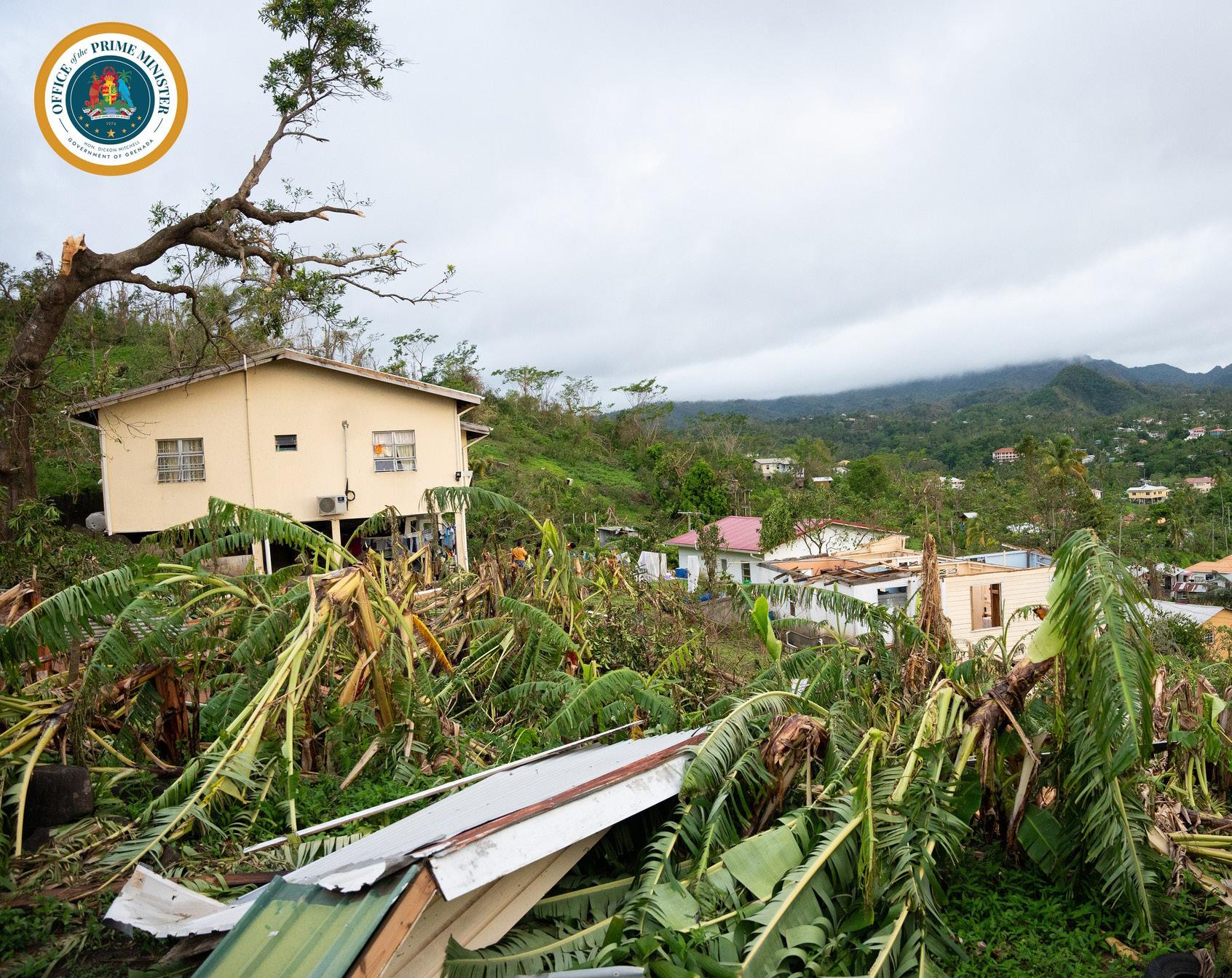
The CARICOM Special Ministerial Task Force on Food Production and Food Security (MTF) will convene a strategic meeting this week to chart the way forward for the agriculture sector following the significant impact of Hurricane Beryl on some Member States.
H.E. Dr Mohamed Irfaan Ali, President of Guyana, and CARICOM’s Lead Head of Government with responsibility for agriculture and food security announced the decision on Sunday during a virtual
broadcast. The significant impact Hurricane Beryl caused on the agriculture sector of the Region must be addressed in a comprehensive manner, President Ali said.
He expressed grave concern over the setback Hurricane Beryl will have on the 25 by 2025 food security plan, which is intended to reduce the Region’s food import bill by 25 percent by 2025.
Beryl was the first storm of the 2024 Atlantic hurricane season. It affected
Barbados and Saint Lucia on 1 July; and went on to severely impact St. Vincent and the Grenadines and Grenada on the same day as a Category 4 hurricane. Jamaica felt its wrath on 3 July. President Ali described the situation in Grenada, particularly in Carriacou and Petite Martinique as “horrific” with livestock, cash, and permanent crops being wiped out.
In St. Vincent and the Grenadines, there was significant destruction of crops, while the damage on Union Island was pegged at almost 100 per cent. In addition to crop devastation, the fishing industry in Barbados, was “severely damaged” with onethird of the Bridgetown Fishing Harbour being destroyed and more than 200 fishing vessels damaged or destroyed. Saint Lucia suffered setbacks with an initial assessment of 35 percent damage to the sector. Jamaica also suffered extensive damage, President Ali said.
Member States that were hit were on track to achieve the 25 by 2025 targets that they had set themselves, he said.
“The initial assessment is heart-wrenching to our farmers, to our governments, and to the people of these countries. It is heart-wrenching because of the tremendous investment, the tremendous policy commitments, and budget support that was placed in the agriculture sector. Since 2020, the investment in infrastructure, water systems, technology, crop variety, farm support, farm to market infrastructure, many of these countries would have
lost all of these investments,” the President said.
He said initial estimations place the damage to the investment, infrastructure, crops, and livelihoods in the vicinity of tens of millions of dollars.
“So not only is the initial investment and cost of damage concerning to me as Lead Head on Agriculture, but it is also the long-term investment costs to rebuild the infrastructure, to find resources to recapitalize the farmers … A lot of the crops damaged are long-term crops also– seven years to maturity to get high-yielding variety; to get inter-cropping in place whilst investment is placed in permanent long-term crops. So, there are a lot of medium and long-term issues in the agriculture sector in the Region that must be addressed and addressed in a comprehensive way,” he said. He pointed out that infrastructure, retooling, grants, supporting farmers and fishers to recover assets, are some of the areas that have to be considered.
The focus now, the President said, is on mobilizing stakeholders and resources to address the setback to the 25 by 25 initiative. That approach to the “build back” phase will include seeking support of development partners including the Food and Agriculture Organisation of the United Nations (FAO) and the Inter-American Institute for Cooperation on Agriculture (IICA).
According to the Caribbean Agricultural Research and Development Institute (CARDI), Hurricane Beryl has caused devastating losses to agricultural assets in St. Vincent and the Grenadines, with up to 80-100% of certain crops being destroyed. CARDI representatives have been actively meeting with affected farmers on the island to assess the damage. “Preliminary findings reveal between 80% and 100% destruction of crops such as bananas, plantains, coconuts, avocados, and a variety of vegetables,” stated CARDI. “Many of these crops were ready for market, leaving the livelihoods of farmers in jeopardy.” Despite the extensive losses, there is a silver lining. CARDI reports that root crops such as potatoes, sweet potatoes, yams, dasheen, and cassava have largely
been spared from wind and rain damage. These crops’ marketable storage organs are located underground, making them more resilient to the hurricane’s impacts. “Root crops have been identified as suitable to prepare for, cope with, and recover from climate-related disasters like hurricanes and storms,” CARDI noted.
While assessments are ongoing to determine the full scale and impact of the hurricane on the agricultural sector, it is evident that the loss and damage have been significant. “We at CARDI remain committed to assisting the impacted islands in restoring agricultural production while working with all stakeholders to build resilience,” the organization affirmed.
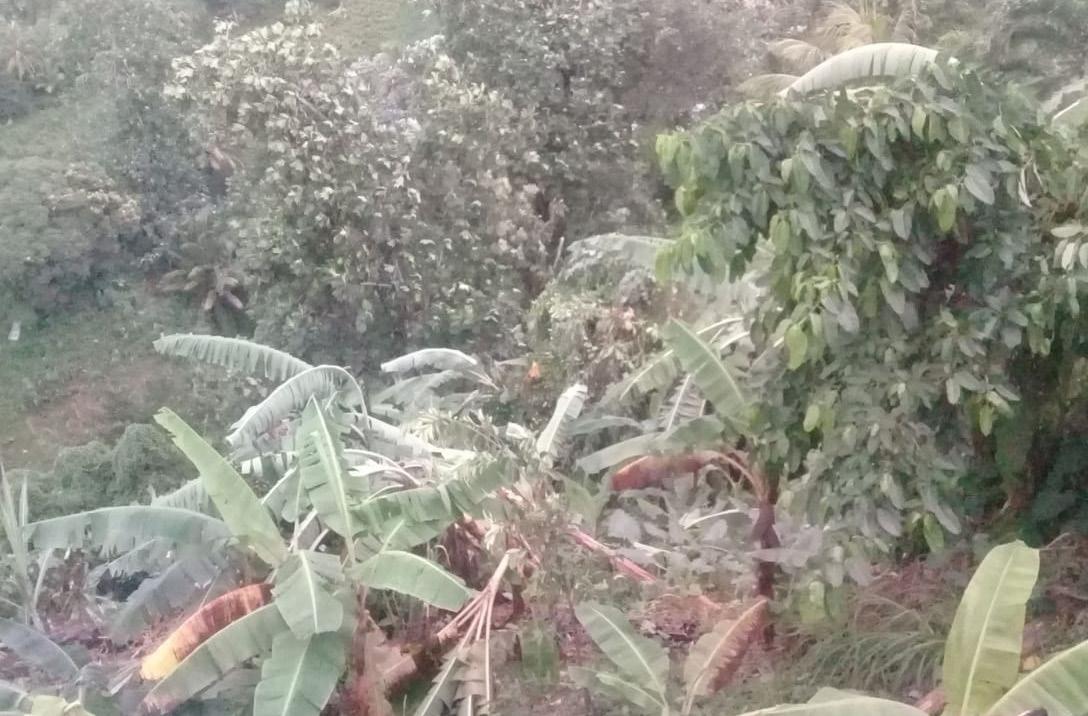

Prime Minister Dr. Keith Rowley revealed the disturbing findings of the audit in a statement to Parliament saying, “Shockingly, the audit discovered that the former SSA director initiated
the procurement of high-grade military bolt-action rifles, complete with the most modern silencers and other accessories; and the SSA was engaged in training specially selected questionably hired personnel in the skill of the use of such weapons.”
Read his speech below:
Madam Speaker,
I am authorised by the Cabinet to issue the following statement:
Issue 1: Strategic Services Agency (SSA) In the Annual Report of the Strategic Services Agency (SSA) for the year 2022 it was noted that the SSA was established in 1995, in accordance with Chapter 15:06 of the Laws of the Republic of Trinidad and Tobago, and became operational on July 01, 1996.
The primary purpose of the SSA is to
guide the formulation and implementation of national policies on illicit trafficking of dangerous drugs and related criminal activities.
The main functions of the Agency are outlined by Section 6 (1) of the SSA Act, as expanded by the SSA (Amendment) Act, No.4 of 2016 (assented to by the President of the Republic of Trinidad and Tobago on May 31, 2016), which are to:
act as an office for centralizing information that could facilitate the detection and prevention of serious crime, for co-ordinating operations for the suppression of serious crime and for co-operating with the Services or the corresponding services of other countries. develop strategic intelligence and make recommendations to Government on the formation of policies in relation to
serious crime.
prepare crime prevention strategies disseminate information and intelligence to the Services; provide intelligence and analytical support for the appropriate operational and intelligence arms of the Services; assist in identifying sophisticated criminal activity and those who engage in it; help the law enforcement effort by identifying links between individuals and organizations involved in serious crime; provide strategic intelligence identify new trends in, and patterns of criminal activity; provide a nucleus of specialist intelligence personnel establish channels of communication with the Services and the corresponding Services of other countries.
David Lammy, the son of Guyanese immigrants, was appointed Secretary of State for Foreign, Commonwealth and Development Affairs on 5 July 2024. The Secretary of State has overall responsibility for all Foreign, Commonwealth & Development Office business, including:
Overarching responsibility for the departmental portfolio and oversight of the ministerial team
Cabinet foreign policy and National Security Council
Strategy
Intelligence policy
Honors
He studied law at the School of Oriental and African Studies (SOAS) Law School and was admitted to the Bar of England and Wales in 1994. He was elected as Labour MP for Tottenham at the age of 27 in June 2000, and
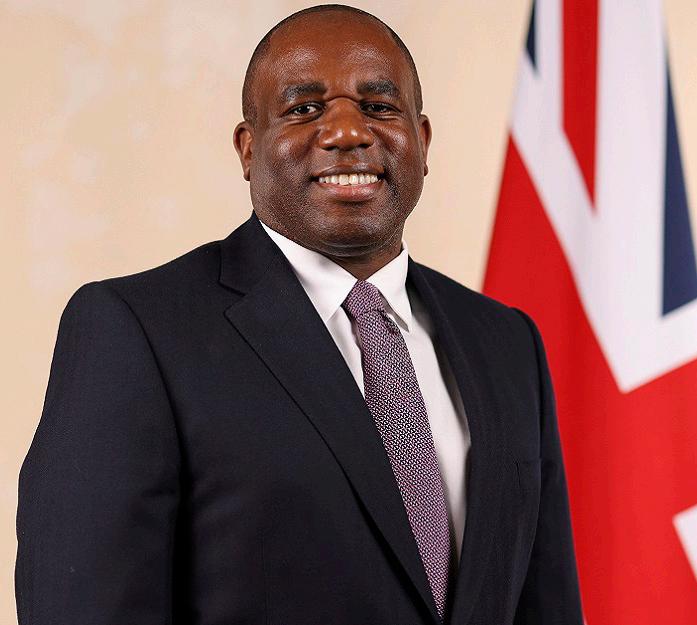
served 9 years (2001 to 2010) as a Minister in the Labour government and was made a Privy Councillor in 2008.
David is also the author of ‘Out of the Ashes: Britain After The Riots’, a book about the rea-
sons behind the 2011 riots and what has to be done to prevent them happening ever again.
Following his appointment, Lammy made this statement:
“It is the honour of my life to stand before you as Foreign Secretary.
A descendant of enslaved people.
A black, working class, man from Tottenham.
A community which has never produced a Foreign Secretary before.
This speaks to what a modern, multicultural Britain can be.
Proudly internationalist.
Determined to deliver for working people.
And committed to building a better future for us all.
Britain has enormous potential. But the world faces huge challenges. More countries engaged in conflict than at any
time since World War II.
Rapidly changing technology.
And a climate emergency.
This government will reconnect Britain for our security and prosperity at home.
What happens here in the Foreign, Commonwealth & Development Office is essential. Diplomacy matters.
We will begin with a reset with Europe, on climate and with the global South.
And a gear-shift when it comes to delivering on European security, global security and British growth.
My story is a story of progress.
Progress won by all those who fought for a better future.
Together, let us fight for a better future once again.”
Change begins now.
Vice President Dr. Bharrat Jagdeo stated on Thursday that Guyana will not become an ATM for the Caribbean or any other nation due to its newfound oil wealth, but it remains open to investments from its Caribbean neighbors.
Addressing the notion of Guyana potentially being viewed as the financial capital of the Caribbean, Jagdeo emphasized, “It’s disparaging to the Caribbean people to think that they would see us as an ATM.” He clarified that he does not believe Caribbean nations view Guyana in this manner. Instead, he envisions a future
where Caribbean countries can invest in Guyana and share in its prosperity. Jagdeo highlighted the priority of ensuring that the benefits of Guyana’s oil wealth reach its own citizens first. “We have to ensure that our own people are prosperous first, here in Guyana, wherever they live – in the most remote parts of the country, every Guyanese – that’s the first order of business,” he asserted. He also noted that Guyana’s current oil revenue does not allow for excessive spending. “We have to manage this wealth and we can’t splurge now when
we don’t have money as yet, but later it’s going to get better,” he explained. To illustrate this, he pointed out that less than 30% of Guyana’s GYD $1.1 trillion budget for 2024 is funded by oil money from the previous year.
Nevertheless, Jagdeo emphasized the importance of supporting neighboring countries in the region, especially in times of need, citing past assistance received by Guyana during the 2005 flood. “We have to be generous to people in our region too and people who suffer calamities around the world,” he said. He praised
the previous government’s aid to Haiti during the 2010 earthquake, when Guyana was not yet producing oil, noting that the country had donated US$1 million, a significant amount in proportion to its GDP at the time.
Jagdeo’s remarks underline a balanced approach to managing Guyana’s oil wealth, prioritizing domestic prosperity while remaining open to regional cooperation and support.

The United Nations has called for international solidarity with Grenada, the Saint Vincent and the Grenadines, and other Caribbean islands hit hard by Hurricane Beryl.
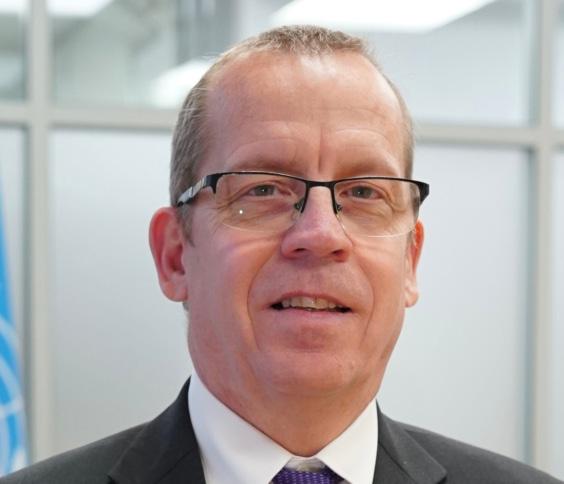
BRIDGETOWN, Barbados, CMC – Two senior United Nations officials Friday said that the passage of Hurricane Beryl through the Caribbean this week underscores the concerns of small island developing states (SIDS) that have continuously blamed developed countries for the severe impacts associated with climate change.
The UN Resident Coordinator for Jamaica, The Bahamas, Bermuda, The Cayman Islands and the Turks and Caicos Islands, Dennis Zulu, and Simon Springett, the UN Resident Coordinator for Barbados and the Eastern Caribbean, told reporters that they were both in attendance at the fourth international conference on SIDS, where the developing countries raised the issue as they have done at other international gatherings before.
“Dennis and I were both fortunate to attend the …conference held in Antigua and Barbuda at the end of May and clearly these were the messages that were coming out, a real call and demand for climate justice,” Springett told a virtual news conference.
He told reporters that “when we say climate justice, it links to …financing for both adaptation and mitigation,” adding that the Grenada government “has been trying for a very long time …to build some resilience and now this
‘Explosive’
A Category 5 storm, Hurricane Beryl has claimed at least six lives as it barrels through the Caribbean Sea. Initial reports indicate severe damage to homes, infrastructure and power and communications.
UN Spokesperson Stephané Dujarric told journalists at the regular press briefing in New York that seven agencies based in Grenada and nine in Saint Vincent and the Grenadines “will be augmented by additional UN emergency teams in the coming days.”
“Logistics are going to be a challenge, given the islands’ dispersal, damaged infrastructure and limited accessibility,” he said.
Mr. Dujarric added that the Secretary-General is “very much appealing for strong international solidarity” with Grenada, Saint Vincent and the Grenadines and the other islands that have been hit by the hurricane.
“These small island states that the Secretary-General has often visited are again bearing
the brunt of natural disasters. And it is critical that we see international solidarity,” he added.
Hurricane Beryl is only just the start of what is forecast to be extremely intense 2024 hurricane season, amid worsening impacts of climate change.
The UN Spokesperson also voiced concern for Haiti, which was already in a dire situation before the hurricane.
“The security situation is not making it any better. We are prepositioning, we are ready to help as soon as the storm hits and before,” he said.
According to the UN Office for the Coordination of Humanitarian Affairs (OCHA), aid agencies there are in close contact with Haitian authorities, who have amplified early warning messages.
“UN agencies, of course, stand ready to assist and have already taken anticipatory measures,”
Mr. Dujarric said.
‘Explosive’ intensification
Also on Tuesday, the UN World Meteorolog-
ical Organization (WMO) raised alarm over the rate at which Hurricane Beryl intensified from a tropical depression to a Category 3 in 42 hours, and Category 4 in 48 hours.
“This is unprecedented for June but is in line with the recent trend towards very rapid intensification,” the agency said, recalling that such was the case with Hurricane Otis which grew to a Category 5 hurricane overnight and hit the Mexican resort of Acapulco last October. At least 52 people were reported to have been killed by Hurricane Otis and a further 32 remain missing.
WMO noted “record high” sea surface temperatures, warning that the stage is set for an “especially active and dangerous” hurricane season for the entire basin – Atlantic, Caribbean and Central America.
“It takes just one landfalling hurricane to set back years of socio-economic development. For example Hurricane Maria in 2017 cost Dominica 800 per cent of its Gross Domestic Product (GDP),” said Ko Barrett, WMO Deputy Secretary-General. (UN)
gets wiped out.
“These countries all have a very high GDP (gross domestic product) to debt ratio and reconstruction…quite frankly does not get done on grant based financing and these governments are not able to take loans at concessional rates”.
Springett said events like Hurricane Beryl that left a trail of death and devastation put the sustainable development of these Caribbean countries “back by decades.
“It has such a major impact on their economic development,” he said, noting that a new sustainable development goal (SDG) report released recently showed “limited progress and there is a lot of work to be done”.
For his part, Zulu told reporters that the vulnerability of the small island states had been reinforced at the SIDS conference in Antigua, adding “the fact that most of them are deemed to be high income countries …dealing with reconstruction is obviously a challenge.
“If you have as we are anticipating this year a minimum of 20 hurricanes coming this lead to huge devastation of infrastructure, the resources, I mean the …fiscal space these countries have is limited in terms of being able to respond and react.
“So as some countries…like Barbados, where the Prime Minister [Mia Mottey] is requesting a relook of the international architecture to be able to take into consideration the vulnerabilities of Caribbean states in their accessing of concessional grants is very important.
“But also when you look at the fact that these [hurricanes] happen often and a lot of these countries are basically in debt because they have to pay for the same bridge many times over, the fact you construct one day and it is destroyed the next year or the next month… this brings a huge burden on their financial ability to do that.” Continued on nycaribnews.com










Authorities in Haiti announced Monday that officers have regained control of a police station in the capital, which had been a recent target of armed gangs. Since early 2024, gangs have raided over two dozen police stations in Port-auPrince, targeting critical state infrastructure in a series of coordinated attacks. The station, located in Gressier at the western edge of Port-au-Prince, was attacked on Sunday. Lionel Lazarre, a spokesperson for a police union, reported that the assault resulted in civilian casualties, although the exact number is unknown. During the attack, armed groups set houses on fire, causing widespread panic in the community.
A bus driver was attacked and shot by
gunmen while on duty, Lazarre added. This incident occurred just days after hundreds of Kenyan police officers arrived in Haiti to assist in combating the country’s pervasive gang violence.
Social media videos captured the chaos, showing armed men storming the police station, expressing anger towards the Haitian government and the Kenyan police officers, and setting fires that mostly destroyed the station.
In a similar incident in May, civilians and police officers called for the dismissal and arrest of the police chief as heavily armed gangs took over the same station in Gressier. That attack also caused widespread panic and left many homeless as gangs rampaged through the area.

JN Money Services Limited (JNMS), operators of the JN Money brand, has introduced a 50% discount on remittance fees for funds sent to Jamaica using JN Money. This initiative was launched on the eve of Hurricane Beryl’s approach on July 2 and extended until July 6 to support Jamaicans overseas who wish to assist their relatives and friends affected by the hurricane. The discount applies to transactions made at JN Money branch locations or via JN Money Online.
Horace Hines, General Manager of JN Money, emphasized that this fee waiver demonstrates the company’s commitment to partnering with the diaspora and supporting their efforts in the nation’s recovery and development.
Although Hurricane Beryl, a category four

storm, did not make landfall in Jamaica, it caused significant damage to homes, buildings, road infrastructure, and powerlines,
particularly in southern St. Elizabeth, Clarendon, and Manchester. Many livelihoods, especially those of farmers, were severely impacted.
Hines reaffirmed JN Money’s dedication to aiding Jamaica and its citizens in the recovery process. “Even without complete data, we understand that many Jamaicans rely on remittances. It was crucial for us to facilitate any effort to ease the burden and support their recovery,” he explained.
The company’s response was driven by numerous inquiries from diaspora members, reflecting JN Money’s history of involvement in recovery efforts following previous hurricanes, such as Ivan (2004), Dean (2007), and Sandy (2012), as well as Tropical Storm Gustav (2008).
“Our role in facilitating the diaspora during
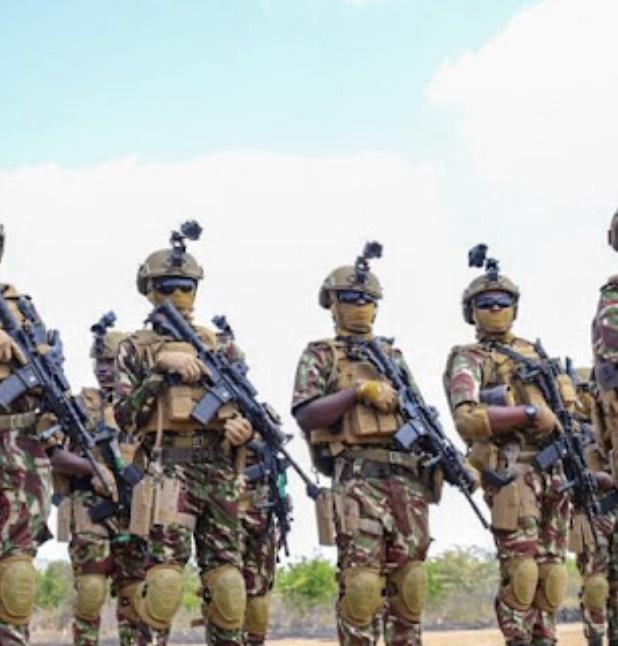
emphasized the mission’s commitment to ensuring democratic elections
This announcement was made during a nationally broadcast news conference, marking the first public comment from the Kenyan force, although no questions were taken from the media.
Significant questions linger regarding the Kenyan force, which arrived late last month in Haiti. This deployment follows months of powerful gangs seizing control of most of Port-au-Prince, leading to the prime minister’s resignation.
“We have a job that we are committed to do,” said Kenyan officer Godfrey Otunge. “We intend to achieve this by working closely with Haitian authorities and local and international partners dedicated to a new Haiti.”
The UN-backed mission, supported by over $300 million from the United States, has faced scrutiny from the outset. Kenyan police have been accused by watchdogs and witnesses of human rights abuses, including during recent protests in Kenya.
Haiti’s new Prime Minister, Garry Conille, has
described the history of foreign intervention in Haiti as a “mixed bag,” citing instances of human rights abuses and a “lack of respect for sovereignty and local culture.” Nonetheless, some Haitians have welcomed the new mission with optimism.
Kenya has pledged 1,000 police officers to the international force, with 200 initially arriving. Conille informed the UN Security Council last week that the next contingent would arrive “very soon.”
The force will eventually include police from the Bahamas, Bangladesh, Barbados, Benin, Chad, and Jamaica, totaling 2,500 personnel.
Appointed by a transitional council in May, Prime Minister Conille has been urged by U.S. officials to prioritize establishing an electoral council as Haiti strives to rebuild its government. Conille’s primary task is to stabilize the country in preparation for democratic elections in February 2026.
Otunge highlighted the mission’s goal to “create security conditions conducive to holding free
the rebuilding phase is well established, and we are committed to maintaining this partnership to help Jamaicans overseas contribute to the country’s recovery and development,” said Hines.
Hines noted that the fee waiver is part of the JN Group’s broader Hurricane Recovery Programme, which aims to identify the immediate needs of members, customers, and their communities following Hurricane Beryl and to assist them in building capacity to respond to future disasters.
JN Money operates through a vast network of approximately 8,000 branches and agents in the United States, Canada, the United Kingdom, the Cayman Islands, and the Philippines. It also has agents in Guyana, Turks and Caicos, and Antigua.
and fair elections.”
Haitian police chief Normil Rameau also addressed the nation, stating that the mission focuses on reclaiming areas from gang control, reinstating police presence in regions lacking authority, and assisting displaced Haitians in returning home. More than half a million people have been displaced by the violence. Rameau and other Haitian authorities have withheld details of future operations for strategic reasons, aiming not to alert the gangs to their plans.
Haiti requested an international force to combat gangs in 2022, with UN Secretary-General António Guterres appealing for months for a leading country before Kenya stepped forward. Gangs have grown in power since the assassination of President Jovenel Moïse on July 7, 2021, and are now estimated to control up to 80 percent of Haiti’s capital. The surge in violence, including killings, rapes, and kidnappings, has spurred a violent uprising by civilian vigilante groups.
In the aftermath of Hurricane Beryl, which caused widespread devastation across Grenada, Jamaica, and Saint Vincent and the Grenadines, the United States, through USAID, plans to provide $4.5 million in immediate humanitarian assistance to aid response efforts. We stand with these communities impacted and will continue to help them in this time of need.
In Jamaica, USAID intends to provide $2.5 million to repair homes, address water and sanitation needs, support logistical operations; and provide essential relief items, such as clean-up kits, hygiene kits, and tarps. USAID will also provide market-based assistance to help affected residents purchase basic household commodities and other needed items.
In Grenada and Saint Vincent and the Grenadines, USAID intends to provide a total of $2 million, $1 million for each country, to bolster relief efforts. This funding will provide shelter and emergency relief items for several thousand people displaced due to storm damage. USAID also plans to provide market-based assistance to affected households to provide critical flexibility in their recovery
efforts.
Prior to Hurricane Beryl making landfall in the Caribbean, USAID pre-positioned relief supplies in the region, deployed eight staff, and activated 25 disaster experts in seven countries to support response efforts. USAID humanitarian teams remain on the ground across the Caribbean to work with partners and local governments to assess storm damage and humanitarian needs, and to support the disaster response. In addition, USAID partners in the region are rapidly evaluating existing programs and pivoting where appropriate to support response efforts.
This year, the National Oceanic and Atmospheric Administration (NOAA) predicts an above-normal hurricane activity. USAID is working closely with the NOAA, the UN, implementing partners, and local governments to support hurricane preparedness by co-developing emergency and evacuation plans; training national disaster response organizations and first responders; and educating vulnerable communities so they know what to do when the next storm hits.


The contentious legal battle between firefighter Jerrod Jones and the city of Rochester has concluded with . a recent settlement.
Jones alleged that he was forced to attend a party with racist undertones while on duty two years ago. According to Jones, his captain, Jeffrey Krywy, took him and two other firefighters to a private event hosted by local dentist Dr. Nicholas Nicosia and his wife, Mary Znidarsic-Nicosia. The event, held at a private mansion on East Avenue, included controversial elements such as cut-outs of Donald Trump, Juneteenth flags, and buckets of Kentucky Fried Chicken.
Court documents revealed further disturbing details, including inappropriate displays of local Democratic politicians and a performer impersonating Monroe County Legislator Rachel Barnhart, with the crowd engaging in sexually explicit comments. Following an investigation, Krywy was suspended and subsequently chose to retire from the Rochester Fire Department. Jones filed a federal lawsuit last May, asserting claims of discrimination and unjust treatment dating back to his recruitment in 2007. As part of the settlement, the city has agreed to pay Jones $75,000 immediately, with an additional
$75,000 to be paid upon his retirement in four years. Jones will remain on paid leave until his retirement.
In a joint statement issued by Jones and the city, both parties expressed their satisfaction with the resolution of the case. It was also announced that Jones has decided not to return to his duties as a firefighter, a decision respected by the city. The statement conveyed well wishes for Jones’ future endeavors and gratitude for his years of service to the city and its citizens.
“On July 7, 2022, Jerrod Jones was a Firefighter working Truck #4 for the Rochester Fire Department. On that day, he and other firefighters on Truck #4 were taken to a private event at a residence on East Avenue, in accordance with the wishes and direction of the newly assigned Captain of Truck #4. While this event was within Truck #4’s district, it was wholly inappropriate for the Captain to have taken the firefighters of Truck #4 to this event on-duty. This event involved wholly inappropriate political and racial overtones.
Following this event, Firefighter Jones commenced suit against the City of Rochester asserting various claims stemming from this incident. Today, the parties are pleased to announce that this lawsuit has been resolved to the mutual satisfaction of the parties.
As part of this resolution, Mr. Jones has elected not to return to his duties as a firefighter. This was Mr. Jones’s decision and the City is respectful of his choice. The City wishes Mr. Jones the very best in his future endeavors and thanks him for his years of service to the City and its citizens.
The parties express their appreciation to each other for their respective efforts which led to this mutually satisfactory settlement as Mr. Jones moves forward positively and so too does the Rochester Fire Department under the leadership and direction of Chief Napolitano.”

by Sebastian Bastian courtesy Eyewitness News, Bahamas
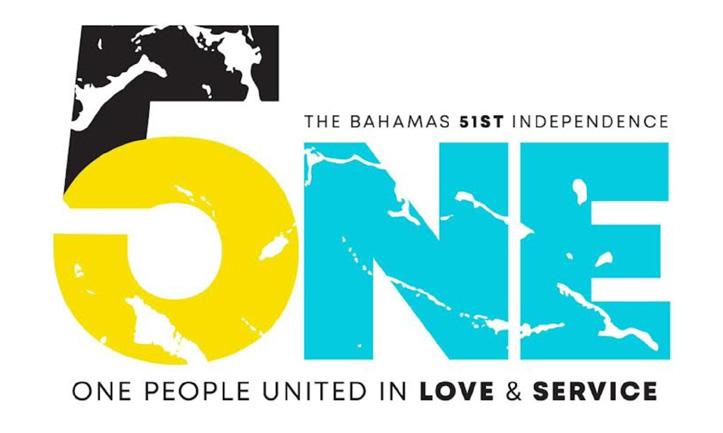
As the Bahamas prepares to celebrate its 51st year of independence, we find ourselves at a crucial juncture in our nation’s history. This milestone offers an opportunity to reflect on our achievements, confront our challenges, and chart an optimistic course for our future.
First and foremost, we must acknowledge the monumental efforts of our founding fathers and the progress we’ve made since 1973. The Quiet Revolution, as chronicled by Doris L. Johnson, paved the way for majority rule and independence. We’ve made significant strides in eradicating racial barriers and establishing ourselves as a sovereign nation on the world stage. However, as we celebrate these accomplish-
ments, we must also confront an uncomfortable truth: the gap between the haves and have-nots in our society has continued to widen, even under predominantly black leadership. While we’ve overcome many of the overt racial obstacles of the past, economic inequality remains a persistent challenge.
As we look to the future, it’s clear that we need a new revolution – one that is neither quiet nor complacent. This revolution must focus on creating broader ownership across the Bahamian economy and ensuring that all our citizens have the opportunity to prosper.
To achieve this, we need bold and intentional changes in several key areas:
1. Education: Our current system is failing to adequately prepare our youth for the challenges of the 21st century. We need a comprehensive overhaul that emphasizes skill-based learning, financial literacy, and entrepreneurship.
2. Economic Diversification: While tourism remains vital, we must support the growth of new industries such as technology, fintech, and renewable energy. Crucially, we must ensure that Bahamians are educated and trained to be owners and skilled employees in these sectors.
3. Financial Empowerment: We need a widespread campaign to improve financial literacy among our citizens. This should include
education on saving, investing, and building generational wealth.
4. Job Readiness: Our education and training programs must be aligned with the needs of emerging industries to ensure our workforce is prepared for the jobs of tomorrow.
The battle we face today is not one of black versus white, but of empowerment versus stagnation. It’s a fight for enhanced quality of life, economic democracy, and financial freedom for all Bahamians.
Despite these challenges, there is much reason for optimism. The current political environment has attracted hundreds of millions of dollars in investment, signaling confidence in our nation’s future. This influx of capital presents a tremendous opportunity, but it also comes with a responsibility. To those negotiating these deals, we say: strike the best agreements possible, but never at the cost of our sovereignty. The Bahamas is rich in opportunities, and we must never sell ourselves short. Jobs alone are not enough – we must ensure that these investments contribute to the long-term prosperity and empowerment of all Bahamians. Our greatest natural resource remains our people. As we move forward, we must unite not just as political parties, but as a people. It is our collective responsibility to be the architects of
our future. This means actively participating in our democracy, supporting local businesses, investing in education and skills development, and working together to build a more inclusive and prosperous Bahamas.
As we celebrate 51 years of independence, we should be proud of how far we’ve come. But we must also recognize how far we have yet to go. The next generation is depending on us to shape a future full of opportunity and prosperity for all Bahamians.
Our actions in the coming years must speak louder than our words. We need policies that promote economic inclusion, educational programs that prepare our youth for the future, and a national commitment to reducing inequality while fostering sustainable growth. The quiet revolution of the past gave us political independence. Now, we need a bold, vocal revolution to achieve true economic independence for all our citizens. This revolution begins with each of us taking responsibility for our shared future and working together to build a stronger, more prosperous Bahamas. Happy 51st Independence, Bahamas. May our next half-century be marked by unity, innovation, and opportunity for all. Let us move forward with optimism, determination, and a shared commitment to making our nation the best it can be.
Beryl is the strongest hurricane ever to form in the Atlantic during June and rapidly intensified from a tropical depression to a Category 4 storm, briefly reaching Category 5 with winds up to 240 km/h (150 mph).
It made landfall in Texas early Monday morning local time as a Category 1 hurricane, causing a dangerous storm surge and the risk of flash flooding.
It is expected to weaken rapidly as it moves further inland, according to the UN World Meteorological Organization (WMO) specialized regional centre Miami, which is operated by the US National Hurricane Center (NHC).
Extra vigilance needed
WMO also warned of a very intense hurricane season, with up to 25 named storms expected through November. Among them, eight to 13 could develop into hurricanes.
“We need to be especially vigilant this year due to near-record ocean heat in the region where Atlantic hurricanes form and the shift to La Niña conditions, which together create the con-
ditions for increased storm formulation,” said Ko Barrett, WMO Deputy Secretary-General.
“This is why WMO and its partners have prioritized early warning action in small islands under the international Early Warnings For All initiative.”
‘Sobering picture’ in Jamaica
As access improves, the full impact of Hurricane Beryl is becoming clear.
UN humanitarian teams in Jamaica, where the hurricane made landfall at 5:00 PM on July 3, report a “sobering picture of widespread damage and destruction.”
More than 250 roads together with critical infrastructure have been extensively damaged by fallen trees, flooding, and storm surges.
Many houses have lost their roofs, according to a humanitarian bulletin issued on Sunday.
“[A UN team] visited Old Harbor Bay, Portland Cottage, Rocky Point, Alligator Pond and Treasure Beach. They witnessed many families in need of water, food, cleaning, and reconstruction supplies for their homes, as well as psychological support.”
About 160,000 people, including 37,000 children, are estimated to require humanitarian assistance.
Devastation caused by Hurricane Beryl on Carriacou Island in Grenada.© WFP/Jean Paul Laveau Devastation caused by Hurricane Beryl on Carriacou Island in Grenada.
‘Significant destruction’
In the eastern Caribbean, where Hurricane Beryl first made landfall on 1 July, islands have reported “severe damage” and “significant destruction.”
“Exact numbers remain a challenge, as assessments are ongoing amid damage to logistics, power and communications services, as well as power cuts,” the UN Office for the Coordination of Humanitarian Affairs (OCHA) said in a bulletin, also issued on Sunday.
Damage to small airstrips and reliance on smaller boats are hampering logistics efforts, complicating assessments, and delivery of aid.
In Grenada, Carriacou and Petite Martinique, as well as northern areas, are among the hardest-hit, with limited public transportation links
between Carriacou and the mainland. Union Island in Saint Vincent and the Grenadines is also severely affected. Authorities are housing vulnerable people in tourism facilities and conducting assessments. An unknown number of people have evacuated the island.
UN responding rapidly
Meanwhile, UN teams are supporting national and regional authorities in ongoing assessment and assistance missions.
Specialist UN Disaster Assessment and Coordination (UNDAC) teams have also deployed to Grenada, and Saint Vincent and the Grenadines to aid the response.
In Jamaica, the UN Children’s Fund (UNICEF) has finalized its response plan and submitted funding requests to key humanitarian donors to meet immediate needs for children and affected families. The agency is also collaborating with other agencies under the leadership of the UN Humanitarian Coordinator to prepare a joint appeal to raise emergency funds.
Racism
by Stacy M .Brown
Black adults in the United States often develop distinctive coping skills by adulthood to handle the chronic stress of racism, according to a new survey by Duke University researchers.
The study, as reported by Duke Today, suggests that these coping mechanisms are not typically found in their white counterparts, highlighting the unique resilience cultivated through lived experiences of racial discrimination.
The study identifies that social support and religion are among the most common coping strategies employed by Black Americans. Social networks and religious communities offer emotional support and a sense of belonging, which buffer against the negative psychological impacts of racism.
Additional strategies include avoidance, substance use, positive reframing, and activism. Some respondents reported using avoidance techniques, such as disengaging from stressors or using substances like alcohol and tobacco, for temporary relief. Cognitive strategies like positive reframing—focusing on positive aspects in difficult situations—and working harder to overcome obstacles help maintain a sense of control and purpose. According to the study, activism and affirming one’s identity through positive self-statements were also significant strategies. “By educating others and advocating for social change, individuals reclaim a sense of agency and counteract feelings of helplessness,” the researchers wrote.
The study also reveals gender differences in coping strategies. Black women are more likely to engage in activism and use social support,
whereas Black men often employ passive strategies like ignoring racism. They determined that physical activities are more effective for men, reflecting social and cultural influences on coping behaviors. The findings have crucial implications for mental health practices, researchers assert. Mental health professionals are encouraged to recognize and validate these coping strategies, tailoring their support to enhance their effectiveness. “By fostering open discussions about these mechanisms, professionals can help Black individuals navigate racial stress more effectively,” the researchers determined. However, the study emphasizes the need for more comprehensive research. The study found that there remains a call for research exploring coping strategies across different ethnic groups and intersecting identities, such as LGBTQ+ and disabled communities. Further research is needed to understand the overall effectiveness of these strategies in reducing racial stress and improving well-being, the authors noted. They concluded that the survey highlights the resilience of Black adults in the face of racism, underscoring the necessity of culturally informed mental health support. The findings also “emphasize the importance of recognizing diverse coping mechanisms and call for continued research to better support marginalized communities,” experts said.
An earlier study by the University of Georgia found that the negative effects of racial discrimination and the unfair or prejudicial
treatment of individuals based on race on Black Americans are well documented. Researchers said “experiences with racial discrimination are associated with negative mental (e.g., depression, anxiety, hopelessness, violent behavior) and physical (e.g., hypertension, thickening and calcification of the arteries, and heart rate variability) health outcomes.” These detrimental effects on health are found independent of socioeconomic status, age, and gender, the university reported. Moreover, over 60% of Black Americans endorse at least one experience of racial discrimination in their lifetime, and findings suggest that the links between experiences of racial discrimination and negative health outcomes are stronger for Black Americans than for any other group.
University of Georgia researchers added that while individuals of all racial-ethnic minority groups (i.e., Latinx, Indigenous peoples, etc.) are at risk of experiencing racial discrimination and racial trauma, Black Americans are especially at risk, as anti-Black racism is individual, systemic, and historical. Additionally, researchers noted that it is important to consider the compounding impact of belonging to multiple marginalized and oppressed groups, including (but not limited to) race, gender, and sexuality, and how these intersections interact and increase susceptibility to experiences of racial trauma.
Researchers noted that the toll of racial trauma and stress is not limited to psychological outcomes. The negative effects of racial trauma also affect physical health outcomes. The com-
by Ben Jealous
The smoke pollution from Canadian wildfires last summer killed more than 100 people in Michigan – about two dozen in Detroit alone, according to a Cornell University study. Other Detroiters, like June Mack, saw their medical conditions worsen dramatically. Mack, a retiree living in Northwest Detroit who has asthma, was confined to her home and still could not escape the smoke’s impact. She suffered vertigo and double vision that required her to wear an eyepatch and give up driving for months. And it left her worrying about the effectiveness and cost of her asthma inhaler. Mack told Planet Detroit, “I’m concerned that if the air quality is still bad…will [it] work? Or do I have to go to something else more expensive?”
Wildfire smoke and its impacts have long been an issue for many in the western United States. But the fires there are getting worse there too. They are getting worse everywhere. It is climate change in action.
According to the California Department of Forestry and Fire Protection, as of July 6, 150,082 acres had burned so far this year in wildland fires in the state. That is nearly fourand-a-half times the five-year average (34,257 acres) for the same time interval.
“The world is on fire” is no longer a metaphor. In the United States, that means almost 16,000 deaths per year from wildfire smoke. That number could nearly double by mid-century, according to an April analysis by the National Bureau of Economic Research. Another study this year out of Yale found that we could al-
ready be near 30,000 deaths per year, when factoring in all the additional harm to heart, lung, kidney, and mental health in the aftermath of smoke exposure.
The destruction does not end with the fires and smoke. There are the floods that follow the fires. And all the injuries and illness also carry both extreme human and financial costs.
A study published last month found that in California, between 2008 and 2018, there were 52,480 premature deaths associated with exposure to the fine particulate matter in wildfire smoke. And the health care costs from that exposure exceeded $432 billion. Climate change creates the conditions for these fires and ignites them. But, part of a vicious cycle, the fires themselves also help fuel climate change.
Our North American forests have an especially big role in cleansing our air. They are among the forests sometimes referred to as “the Earth’s lungs.” These forests are particularly carbon-dense, because of all the carbon their trees pull out of the atmosphere. Therefore when these forests burn, the fires release significant amounts of carbon dioxide, which in turn creates more warming. And that in turn creates more fires.
Moreover, while the underlying conditions for longer fire seasons and more intense blazes are supercharged by global warming, new research shows that hotter temperatures are themselves likely causing fires to start. We have known that fires continue to smolder under the snowpack in our Arctic forests as so-called “zombie fires.”
Then, when the weather warms, if there is ample vegetation for those fires to consume, they can essentially rise from the ashes of last year’s fire with new life. But new research indicates it could be the heat itself that is lighting the new fires and increasing the prevalence of zombie fires.
The soils of North America’s Arctic and boreal forests are rich in peat. Rapid increases in temperature above ground can cause peat-rich soils to heat up to smoldering temperatures underground, without any other spark or ignition. Add forest fires started by spontaneous combustion to the list of the impacts of climate change.
So, what can we do? For one, we need to break our fossil fuel addiction immediately. The cycle of wildfires, carbon release, and atmospheric warming described above can only be broken if we stop pushing the problem along by continuing to burn fossil fuels.
The other thing we can do is protect our trees and plant more of them. Old growth forests are especially important because they are more fire resistant and absorb and store more carbon than their younger counterparts. And those forests have a well-developed understory – the layer of vegetation between the ground and the upper forest canopy. Many understory plants are perennials that come back after a fire. That means the initiatives from the Biden-Harris administration to protect old growth forests and to plant trees in American cities are critical. The most obvious start is preserving ma-
mon lack of access to quality medical care for people of color as a result of institutional racism frequently makes these symptoms worse. Further, the study found that there’s a “clear positive relationship between racial discrimination and poor psychological functioning.” Racial discrimination is also associated with low infant birth weight, lower self-esteem, selfworth, and adaptation. In a sample of African American college students at predominantly white institutions, experiences of racism and racial discrimination were associated with subsequent increases in sleep difficulties. Furthermore, greater levels of internalized racism (i.e., believing racist messages like Black Americans are “lazy” or “criminals”) are associated with a stronger relation to sleep difficulties. Researchers added that racial discrimination experiences are associated with poorer mental health (i.e., more symptoms of depression and anxiety) as well as lower individual and collective self-esteem. “Being seen and heard is essential to healing,” University of Georgia researchers posited.

ture and old-growth forests and trees on federal lands from being cut. And the $1.5 billion investment in urban forestry by this administration is another great step. Expanding urban tree canopies directly benefits communities with the addition of much-needed shade and green space. And with 84% of Americans living in or just outside cities, that is important. We should be planting trees in every community. As we work to slow the warming and increase protections for trees and forests, if you live in a place with fires or fire smoke, take care, and stay inside when needed. If you live somewhere with an acute risk of fire or post-fire flooding, consider taking precautions like having an emergency plan and packing a go-bag. This is our new normal, but we do not need to just accept it. The solutions are right in front of us. We just need to find the will to reach for them.
Ben Jealous is the Executive Director of the Sierra Club and a Professor of Practice at the University of Pennsylvania.



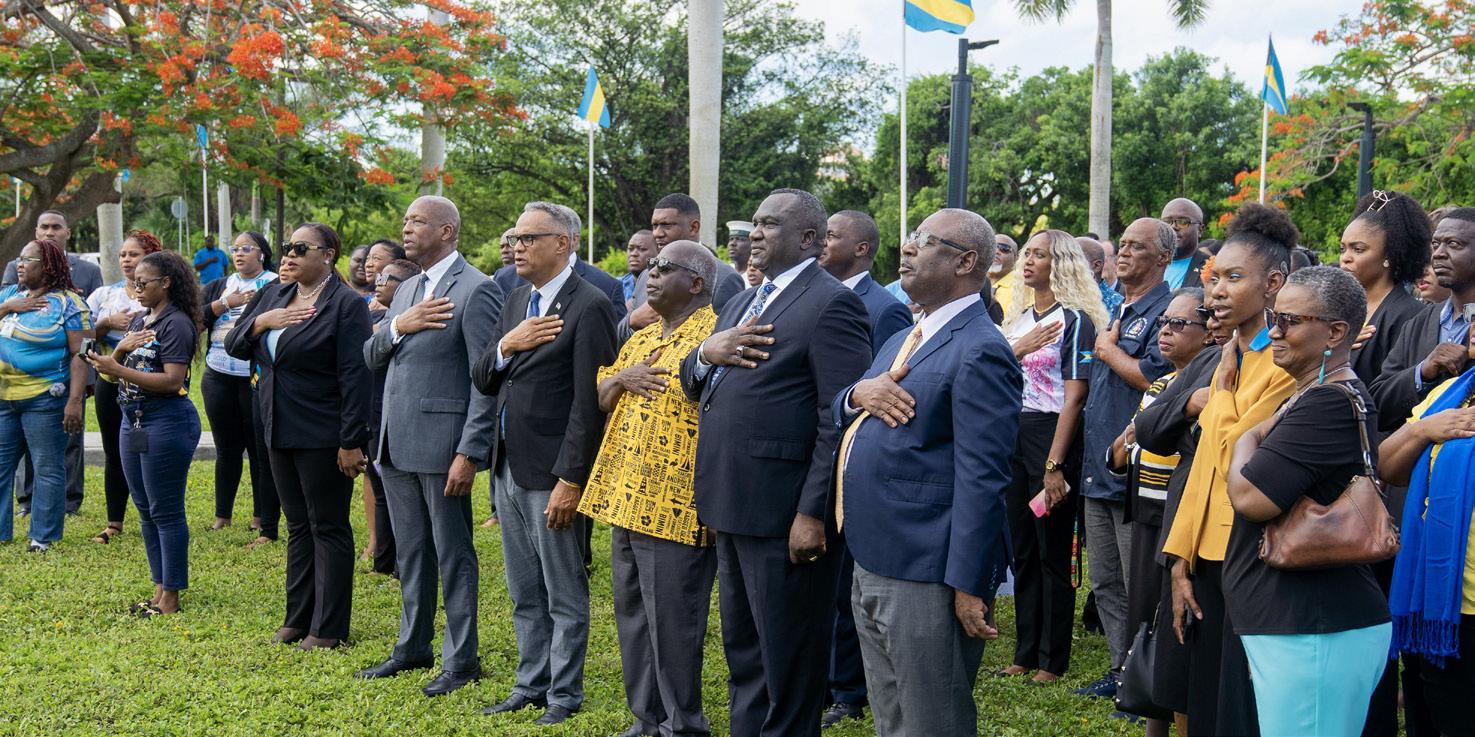
The Secretary-General of the Caribbean Community (CARICOM), Dr. Carla Barnett has lauded The Bahamas as “an example of remarkable socio-economic development within the Region,” as the Member State marks its Fifty-First Anniversary of Independence on 10 July 2024. In a message conveying the Community’s congratulations to Prime Minister Philip Davis of the Commonwealth of The Bahamas, Dr. Barnett commended the country’s indomitable spirit to recover from setbacks and move forward. She also applauded its role in the multilateral arena advocating the concerns of CARICOM on issues such as climate change, human rights, and the multifac
eted crisis in Haiti. “These are priority matters for the Region and The Bahamas has made significant contributions to advance the positions of the Community through its advocacy,” Dr. Barnett stated in the message.
Full CARICOM Message:
On behalf of the Caribbean Community (CARICOM), I extend sincere congratulations to you and the Government and People of the Commonwealth of The Bahamas on the country’s Fifty-First Anniversary of Independence, being celebrated under the theme “One People: United in Love and Service”.
Since Independence, The Bahamas has
NASSAU, The Bahamas -- Governor General, Her Excellency the Most Hon. Dame Cynthia Pratt was in attendance at ‘National Flag Day’ Flag Raising Ceremonies, Friday morning, June 28, 2024 at One Montague Place in observance of 51st Bahamas Independence Celebrations. The National Independence Secretariat encouraged Bahamians at their workplaces across the archipelago to, on this day, launch independence activities by conducting flag raisings and wearing the vibrant national colours of aquamarine, gold and black. The theme for this year’s celebration is ‘One People: United in Love and Service.’ The celebrations culminate with an Ecumenical Service and Cultural Show on the evening of July 9, leading into Flag Raising to welcome of the dawn of Independence Day, on July 10.
History of The Bahamas
The Bahamas, an archipelago that is made up of hundreds of islands and cays, was discovered by Christopher Columbus in 1492. Columbus’ expedition was backed by King Ferdinand and Queen Isabella of Spain. Consequently, the islands were initially subject to
the rule of the Spanish Government. Thereafter, the Bahamian islands were ruled by America for a brief period and were finally possessed by Great Britain. After decades of debate and legal transactions, the Islands of The Bahamas were granted self-government by Great Britain in 1964. This was followed in 1969 with the Colony of the Bahamas becoming the Commonwealth of the Bahamas thus opening the door for full independence.
On July 10th 1973, after 300 years of being a colony, The Bahamas made the peaceful transition to nationhood by becoming an Independent Nation. Since the attainment of Independence in 1973, July 10th has been observed as a National Holiday across the archipelago and in Bahamian Foreign Missions. Over the eight to ten day period leading up to Independence Day Bahamians engage in numerous cultural and festive and ethnocentric activities and events, all of which are designed to demonstrate patriotism. Among the major events planned to be celebrated on every island are: National Pride Day, an Ecumenical Services, a Fun Walk/ Run.
established itself as an example of remarkable socio-economic development within the Region and has demonstrated an indomitable spirit to recover from setbacks and move forward.
I express sincere appreciation, on behalf of the Community, for the leadership of The Bahamas in the multilateral arena on issues such as climate change, human rights, and the multifaceted crisis in our sister nation, Haiti. These are priority matters for the Region and The Bahamas has made significant contributions to advance the positions of the Community through its advocacy.
It is fitting that the Community endorsed The Bahamas as host of the Regional Office of the United Nations High Commissioner for Human Rights, noting your historic role as the first CARICOM Member State to serve on the United Nations Human Rights Council.
The Community welcomes the continued active participation of The Bahamas, under your leadership, and joins the Government and People of the Commonwealth of The Bahamas in celebrating your Fifty-First Anniversary of Independence and extends wishes for ongoing success, peace and prosperity.”
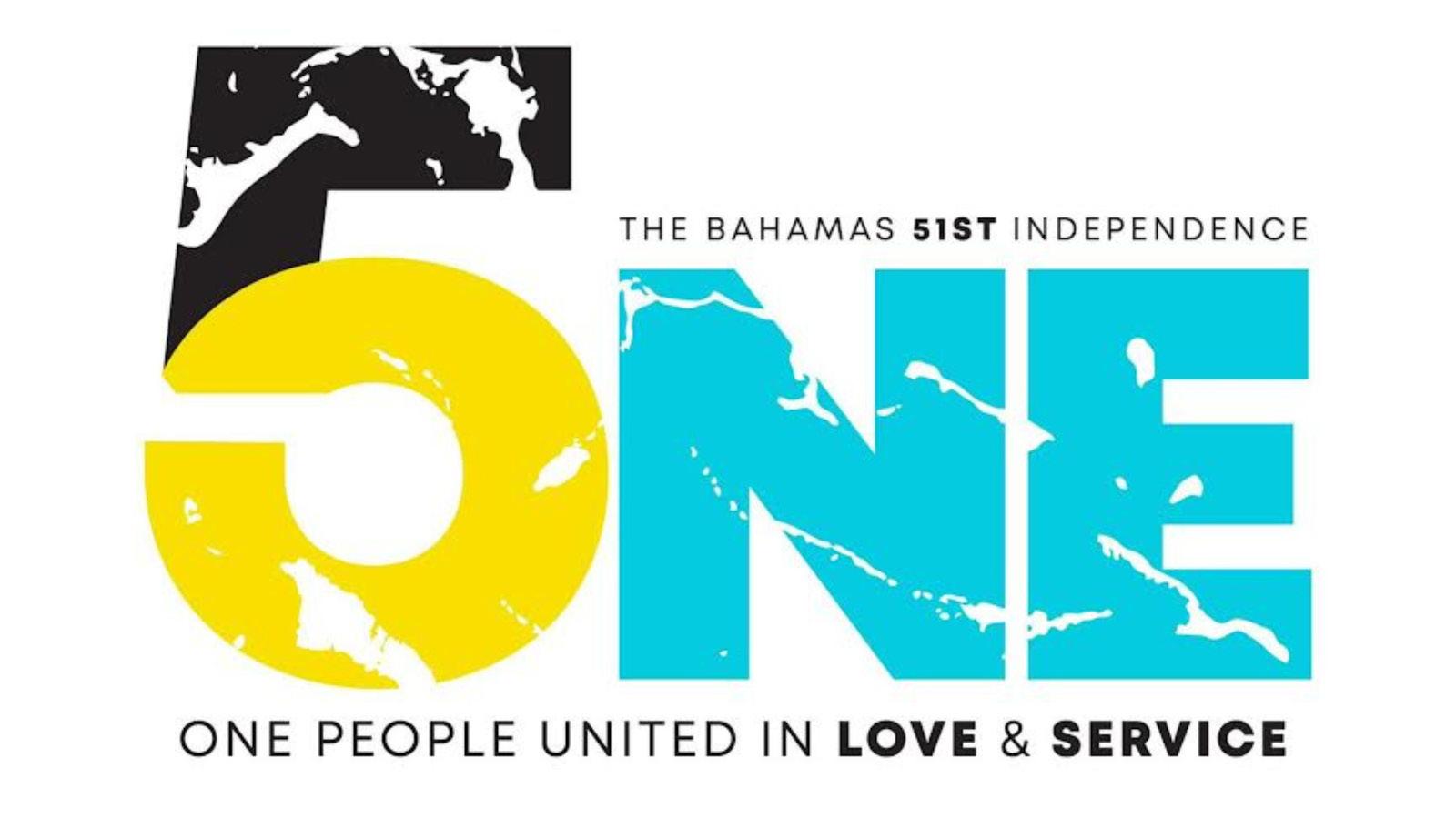
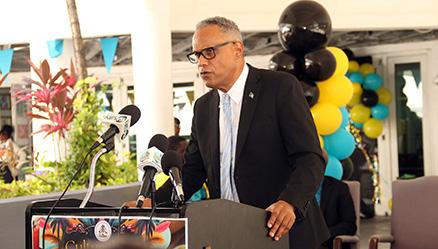


GEORGETOWN, Guyana (CMC) — The regional integration movement, the Caribbean Community (Caricom), on Thursday celebrated the 51st anniversary
of the signing of the Original Treaty of Chaguaramas. In her message, Caricom SecretaryGeneral, Dr Carla Barnett said the an-
niversary comes at a time when several member states are assessing the extraordinary damage and destruction caused by Hurricane Beryl, the earliest recorded Cat-
egory 5 hurricane in the Atlantic, and one of the most dangerous weather systems the region has ever experienced.
According to the Caribbean Agricultural Research and Development Institute (CARDI), Hurricane Beryl has caused devastating losses to agricultural assets in St. Vincent and the Grenadines, with up to 80-100% of certain crops being destroyed. CARDI representatives have been
actively meeting with affected farmers on the island to assess the damage.
“Preliminary findings reveal between 80% and 100% destruction of crops such as bananas, plantains, coconuts, avocados, and a variety of vegetables,” stated CARDI. “Many of these crops were ready for
market, leaving the livelihoods of farmers in jeopardy.”
Despite the extensive losses, there is a silver lining. CARDI reports that root crops such as potatoes, sweet potatoes, yams, dasheen, and cassava have largely been spared from wind and rain damage.
These crops’ marketable storage organs are located underground, making them more resilient to the hurricane’s impacts. “Root crops have been identified as suitable to prepare for, cope with, and recover from climate-related disasters like hurricanes and storms,” CARDI noted.
SAN JUAN, Puerto Rico — Gang violence in Haiti has displaced more than 300,000 children since March, the U.N. children’s agency said Tuesday as the Caribbean country struggles to curb killings and kidnappings. Children are more than half of the nearly 580,000 people who have become homeless in the last four months.
The spike in violence began in late February after a series of coordinated attacks on key government infrastructure eventually led Prime Minister Ariel Henry to resign in April.
“The humanitarian catastrophe unfolding before our eyes is taking a devastating toll on children,” Catherine Russell, UNICEF’s
A triple murder, unprecedented on the island of Tobago has brought the 2024 murder toll to 15, surpassing the total of 14 for the entire year of 2023.
Anselm Douglas, 56, of Black Rock, along with Samuel McKain, 56, of Mt Pleasant, and Gregory Hamlet, 53, of Golden Lane, were shot dead in Black Rock. Another individual, Jumoke Duncan, was also shot multiple times and is currently hospitalized in critical condition. Police have determined the incident to be gang-related. Reports from the police say that around 12:04 am, a group of persons gambling
in Black Rock were approached by three armed men who fatally shot Douglas, McKain and Duncan. The assailants wore camouflage clothing and escaped in a silver Aqua vehicle which was later found abandoned in Lowlands.
A relative of Anslem Douglas, one of the three individuals murdered has expressed deep concern over the rising violence in Tobago and is calling for the resumption of hangings. She told the Express that there seems to be a “gun storm” in Tobago following the passage of Hurricane Beryl.
St George, Grenada, CMC – Grenada has written to financial agencies and multilateral partners requesting that the debt payment suspension clause in several loan agreements be triggered because of the devastation on the country by Hurricane Beryl earlier this week.
In 2022, the national debt of Grenada amounted to an estimated US$0.77 billion.
“The Minister of Finance has already written to some of our multilateral partners to indicate to them that this catastrophic event has happened and to trigger our
debt suspension clause in some of these agreements,” Prime Minister Dickon Mitchell told a news conference.
Following the passage of Hurricane Ivan in 2004, then prime minister Dr Keith Mitchell had advocated and successfully campaigned for a debt suspension to be included in all new loan agreements.
The clause is triggered whenever the country is experiencing hazards from natural disasters, such as hurricanes, earthquakes or a health pandemic.
executive director, said in a statement.
“Displaced children are in desperate need of a safe and protective environment, and increased support and funding from the international community.”
Gangs now control at least 80% of the capital Port-au-Prince and the key roads leading in and out of it, with more than
2,500 people killed or injured across the country in the first three months of the year, according to the U.N. Many children are living in makeshift shelters, including schools that are in poor hygienic conditions, placing them at risk of disease. School closures are also leading to a higher dropout rate.






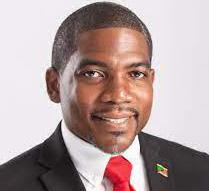
Following the extensive damage caused by Hurricane Beryl’s passage in the Caribbean, the Honourable Dr. Terrance Drew, Prime Minister of St. Kitts and Nevis, issued a stark warning about climate change and its impact on Small Island Developing States (SIDS).
Prime Minister Dr Drew, who is responsible
for Human Resource Development, Health, and HIV and AIDS in the CARICOM Quasi-Cabinet, shared his concerns during his address to the People of Saint Kitts and Nevis earlier this week. He expressed his sadness and sympathy to the Caribbean nations affected by the hurricane, including Grenada and St. Vincent and the Grenadines. He made it clear that the devastation experienced was not just a natural disaster but a sign of the looming threat of climate change.
“This is one of the things I’ve been talking about since coming to office, that we face an existential threat and that threat is the climate crisis,” stated the Prime Minister. “This year, we are seeing a record with a Category 5 hurricane in the month of June, and this has occurred because the temperatures of the seas are high. The temperatures we are seeing now are the temperatures normally seen sometime in August/September, but we
are seeing it now in the very early part of the hurricane season, and that means that we are in for a rough ride in 2024.”
Dr Drew emphasised that the unfortunate situation of deteriorating climatic conditions and their negative impact on livelihoods strengthen the government’s unwavering commitment to transform the Federation into a sustainable island state, one that is more resilient to increasingly intense disasters.
“With these storms that would be coming through the Region, if it is one facility or institution that should remain standing it should be a hospital. When I hear reports that the hospitals in the Grenadines are basically destroyed and people don’t know what has happened to the patients there, it is frightening. When you hear 90 plus percent of the houses and buildings were damaged and the islands are basically uninhabitable at this time, it tells us that the climate crisis is
real and it is really an existential threat and we must act,” stated the Prime Minister. Following the devastation caused by Hurricane Beryl, thousands of people are still without power, and many are in temporary shelters in St Vincent and the Grenadines and Grenada.
Alleviating the impact of disasters such as this was the focus of CARICOM’s advocacy at the UN Climate Change Conference (COP 28), held from 30 November to 13 December 2023. The conference concluded with a call for governments to speed up the transition away from fossil fuels to renewables such as wind and solar power in their next round of climate commitments.
These commitments are of particular concern to SIDS as the Caribbean Institute of Meteorology and Hydrology (CIMH) cautioned that 2024 is predicted to be a year of climate extremes for the Region. (Caricom).
Mosquito borne diseases continue to pose a serious public health threat to the Caribbean Region. The Caribbean Public Health Agency (CARPHA) has increased reports of Dengue outbreaks with hospitalisations and deaths in some instances, and recently confirmed cases of Zika, and Chikungunya at its Medical Microbiology Laboratory.
These mosquito-borne diseases can have a major impact on our way of life and our vital tourist industry on which most of our islands depend.
“The Region of the Americas has seen a twohundred-fold increase in suspected Dengue cases in the first half of 2024, compared to the same period in 2023. Member States are encouraged to remain vigilant. It is crucial that surveillance, prevention and control measures are boosted to reduce the transmission of arboviruses in the Caribbean,” stated Dr. Lisa Indar, Ad Interim Executive Director at CARPHA. Dengue is known to cause outbreaks every three to five years. The Region has seen outbreaks of Chikungunya and Zika virus infections that challenged public health systems in virtually every country in our Region.
Dr. Horace Cox, Assistant Director of Surveillance, Disease Prevention and Control, and Head Vector Borne Diseases at CARPHA:
“These viral infections are transmitted by the Aedes aegypti mosquito – a vector known to be endemic to the Region. With the start of the hurricane season CARPHA is urging its Member States to strengthen integrated vector management strategies in their communities. These include the elimination of mosquito breeding sites with the aim of reducing the number of mosquito larvae.”
To counter the increase in mosquitoes and potential disease transmission, greater effort should be placed on mosquito control activities in communities, and these should be intensified. CARPHA urges its Member States to review their preparedness and response plans, as well as to continue surveillance, early diagnosis,
and timely care of arboviral disease cases, to prevent complications leading to hospitalisation and deaths.
Mr. Rajesh Ragoo, Senior Technical Officer for Vector-Borne Diseases at CARPHA stated “Community involvement is essential in the fight against mosquito-borne diseases. A proactive approach can help to reduce risk and keep communities safe.”
Check and remove standing water from around your home. Ensure your surroundings are clean and free of materials or containers that can accumulate water around your homes and communities.
Use of wire-mesh/screens on doors and windows also help in reducing the entry of mosquitoes into homes.
Water storage drums and tanks must be properly covered and inspected periodically to ensure that there is no breeding. Roof gutters should also be cleaned to prevent water from pooling.
The mosquitoes that spread dengue are active during the day. Personal preventative measures to minimise mosquito bites are also extremely important. Vulnerable groups such as infants, young children, older adults, and women who are pregnant, or trying to get pregnant, must be extra cautious. Long-sleeved clothing and repellents containing DEET, IR3535 or lemon eucalyptus, should be used to protect exposed skin, and must be used in accordance with the instructions on the product label. Confirmed cases of mosquito borne diseases should rest under mosquito nets.
CARPHA remains committed to supporting CARPHA Member States (CMS) in their vector control efforts, including capacity building in integrated vector control strategies. CMS must continue to strengthen prevention and control measures such as surveillance, diagnosis, as well as timely and adequate treatment of cases, while ensuring that health care services are prepared to facilitate access and proper management of patients with these diseases.

Dancehall star Shenseea, who was raised in St. Elizabeth, Jamaica, is leading the challenge to give back to residents in the parish affected by the passage of hurricane Beryl.
St. Elizabeth was one of the parishes severely affected by the category 4 storm. In a shared video making the rounds on social media, the Shen Yeng Boss can be seen alongside her manager Romeich Major and other members of the Romeich Entertainment team loading supplies they
intended to take to the parish this weekend.
The powerful category four hurricane’s eye passed just 45 miles south of Kingston, leaving many Jamaicans without electricity. The outages have also affected several traffic signals. Head of the Public Safety and Traffic Enforcement Branch (PSTEB), Assistant Commissioner of Police (ACP) Gary McKenzie, said personnel have been deployed to maintain order in areas where traffic signals are not in service.

The Apollo Theater said in a release that it is thrilled to present the King of Soca, Machel Montano. Known for his chart-topping hits and electrifying performances, Montano is set to bring the vibrant energy of Carnival to Harlem. This event promises to be an unforgettable evening of music, culture, and community. From his chart-topping hits to his infectious energy, Machel Montano knows how to throw a party like no other.
Montano’s iconic hits and high-energy


According to the Jerusalem Times, Bob Marley’s grandson, Abraham, celebrated his bar mitzvah in Eretz Yisrael. His father, Ziggy, posted a photo of the pair on his Instagram account, saying, “I share this photo of Abraham and I from his celebration of becoming a man according to the ancient tradition he has reached that age of responsibility and change. JAH”
His mother, Orly Agai Marley, is Israeli, of
Iranian-Jewish descent, while Ziggy was raised Rastafarian which is considered to be an Abrahamic religion, basing its belief system on the Torah.
Ziggy is a heavy supporter of Israel. He signed a letter supporting Israel on October 20, following Hamas’s October 7 attack on Israel. Ziggy posted, “Free Gaza from Hamas.” The letter was released by the Creative Community for Peace.
stage presence pack stadiums full of loyal fans. Audiences will have the rare opportunity to experience Machel’s fusion of traditional soca rhythms and contemporary sounds up-close in The Apollo’s Historic Theater, reflecting Montano’s mission to bring soca music to mainstream audiences across the globe.
The Apollo invites fans to join the hottest celebration of music, culture, and community with those you love this Labor Day weekend. They ask that you bring your friends, family, and loved ones for the ultimate celebration of music, culture, and community.

World Travel Awards has revealed its 2024 Caribbean and The Americas winners, and St. Lucia took ‘Caribbean’s Leading Adventure Tourist Destination’ for the third year in a row. The 31st edition of the prestigious awards saw small island Caribbean destinations making significant strides on the global stage, securing top honors in various categories and further cementing their status as prime travel hotspots. These accolades reflect their commitment to excellence in the tourism and hospitality industries, showcasing the unique charm and exceptional offerings of the region. When Saint Lucia was nominated in February, CEO of the Saint Lucia Tourism Authority, Lorine Charles-St Jules remarked, “This recognition serves as a testament to the exceptional offerings and sustainable experiences that Saint Lucia

and its service providers offer to travelers from around the world. We see the World Travel Awards 2024 as another significant opportunity to secure the highest recognition in global travel and tourism. Winning these prestigious awards would solidify
the destination’s status as a global leader in providing unparalleled experiences to visitors.”
The Wonders of St. Lucia: The Pitons, Rainforest Adventures, and Historical Sites
The island offers a variety of adventure experiences, including hiking through its forested slopes and jungle, and exploring the iconic Pitons – twin volcanic peaks that majestically rise from its lush tropical landscape. Among the top activities on the island is the exhilarating climb up these mountains, which rewards adventurers with breathtaking panoramic views. Additionally, hiking through the surrounding jungle offers a sensory experience, where the calls of the vibrant “Jacquot” parrots echo through the trees. These colorful parrots are also a common
sight on the gondolas of the Rainforest Aerial Tram, which transports passengers through the verdant canopy. Located just 30 minutes from Castries, this tram ride feels like a journey into another realm, immersing visitors in the heart of St. Lucia’s natural beauty.
Sulphur Springs: The World’s Only DriveIn Volcano
Although St. Lucia’s volcano last erupted in 1776, its geothermal activity remains palpable at Sulphur Springs, famously dubbed the “World’s Only Drive-In Volcano.” While the term “drive-in” is used humorously, the site’s hot sulfur springs are no joke, providing delightful natural hot pools perfect for a relaxing soak.
On behalf of all Sandals and Beaches Resorts in the region impacted by Hurricane Beryl, we’re pleased to report that our guests and team members are safe. Our resorts in the storm’s path throughout Jamaica, Barbados, Saint Vincent and the Grenadines, Saint Lucia, and Grenada remain open, where guests are already enjoying many of the resort amenities as we work to get back to normal.
As expected with a storm of this magnitude, some areas in Jamaica are without power or WiFi access today, however our resorts are equipped with backup power generators to provide guests as much comfort as possible. We are incredibly fortunate as the majority of
work over the next few days involves addressing damage to trees and landscaping, returning outdoor furniture and supplies to common resort areas and bringing the full resort experience back online. Although regular commercial flights have been disrupted, airports in the region are quickly reopening and working to restore schedules today. We are encouraging guests to remain in the comfort and safety of our resorts until their return flights are confirmed.
We would like to take this opportunity to thank our amazing guests and incredible travel advisors for their many contributions during the past few days. Their understanding and

Kingston – Jamaica’s reputation for resilience continues as Hurricane Beryl moved past on July 3. Jamaica‘s hotels and resorts were well-prepared as staff and guests remained safe during the storm.
Jamaica’s airports and cruise ports have announced plans for re-opening:
Sangster International Airport (SIA) in Montego Bay is currently scheduled to re-open at 6:00 p.m. EST today, July 4. Norman Manley International Airport (NMIA) in Kingston is currently scheduled to re-open at 5:00 a.m. EST on Friday, July 5. The Ian Fleming International Airport (IFIA) in Ocho Rios is currently open.
Jamaica’s Cruise Ports (Montego Bay, Ocho
Rios, Falmouth) are currently open.
Visitors are advised to contact their travel advisor and airline provider for updates before arriving at the airports.
“Jamaica is open for business and, once again, the resilience of the Jamaican people is on full display,” said Jamaica’s Minister of Tourism, Hon. Edmund Bartlett. “We are grateful that there has been no wide-scale impact to our general tourism infrastructure and our tourism industry is fully operational. Our message to our partners and visitors is Jamaica is ready for you, so come back to the destination you love.”
Donovan White, Director of Tourism for the Jamaica Tourist Board encouraged tourism industry partners across the world to spread the word that Jamaica is open. “We are ready, willing, and more than able to welcome our guests back to our beautiful island,” said Director White.
Jamaica has welcomed more than two million visitors thus far in 2024, more than ever reported during the period of January to May, further solidifying its position as one of the world’s leading island travel destinations.
collaboration has been invaluable as we implemented various changes at each resort to prepare and ensure everyone’s safety. Their kind words and compassion expressed to our team members during and after the storm’s passing, meant the world to us. Our team
members deserve immense praise and thanks as well for their commitment, focus, and hard work that went into ensuring everyone at our resorts remained safe, comfortable and that our properties were able to withstand this significant storm.

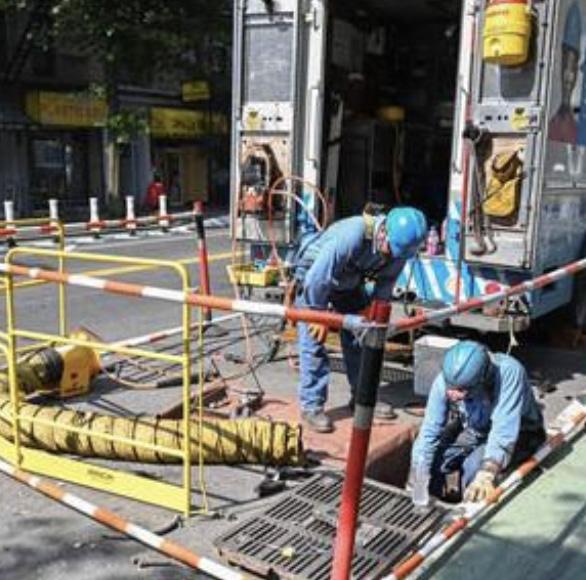
Con Edison crews are ready to respond to any outages or other service problems that may occur due to the hot and humid weather forecast for this weekend.
The company urges customers to use energy efficiently and take steps to stay safe and comfortable.
Heat, humidity and increased demand for electricity to power air conditioners can place stress on electric delivery equipment.
It also can produce thunderstorms with gusty winds that can push trees and branches into overhead power lines and bring those lines down, causing customers to lose service and blocking roads.
The company urges members of the public to stay away from any wires that are downed during storms. Call your local police department or 1-800-75-CONED (1-800-752-6633) to report downed wires.
Report an Outage
Con Edison sends text messages to customers in areas expected to be most impacted, reminding them to be prepared and to report an outage by simply replying OUT to the text. Customers can sign up for text alerts at coned. com/text.
Customers can also report outages and check service restoration status at conEd.com/ reportoutage, with Con Edison’s mobile app for iOS or Android devices, or by calling 1-800-75-CONED (1-800-752-6633).
Customers who report outages will receive updates from Con Edison with their estimated restoration times as they become available.
Information on outages and restoration times is also available at the Con Edison outage map. Learn more about outage map features in this tutorial video.
The company may assign workers to guard downed wires and keep people and pets away from them. These workers may be in unmarked vehicles but they carry Con Edison identification.
New Yorkers can stay cool and save all summer by following these money-saving conservation tips:
If you are running your air conditioner, close off unoccupied rooms. If you are using the AC in your living room and nobody is in the bedrooms, close the doors to those rooms; Set your air conditioner to the highest comfortable temperature. Every degree you lower the thermostat increases costs;
To reduce heat and moisture in your home, run appliances such as ovens, washing machines, dryers and dishwashers in the early morning or late at night when it’s cooler outside; Keep shades, blinds and curtains closed. About 40 percent of unwanted heat comes through windows;
Even when using AC, use ceiling and other fans to provide additional cooling and better circulation;
Turn off AC units, lights and other appliances when not at home and use a timer to turn on your AC about a half-hour before arriving home;
If you run a business, keep the door closed while running the AC; Keep AC filters clean. Replacing an old air conditioner with a new
ENERGY STAR unit can reduce energy usage by 30 percent. Con Edison offers additional energy savings tips.
The best way for customers to save on their bills is to manage their usage. Con Edison offers a range of energy efficiency programs that pay customers who make energy saving upgrades. Programs are available for residential customers, those with low incomes, small businesses, large commercial and industrial properties, and multi-family buildings.
Business customers can also earn incentives from Con Edison’s smart usage programs under which they agree to conserve at times when the demand for power is high.
NYC cooling centers will be open on 7/6. Cooling centers are air-conditioned facilities such as libraries, community centers, or senior centers, that are open to the public during heat emergencies. To find your nearest cooling center, call 311 or visit https://maps.nyc.gov/ cooling-center/. For more information, visit http://nyc.gov/beattheheat. Westchester County offers information on its Sun Safety page.
Customers can follow Con Edison on X or Facebook for general outage updates, safety tips and storm preparation information.

World records set earlier this year by Devynne Charlton and Peres Jepchirchir have now been ratified by World Athletics. In Glasgow on 3 March, Bahamian hurdler Charlton lowered the 60m hurdles world record to 7.65 as she secured her first global title at the World Athletics Indoor Championships.
Charlton had previously shared the world record of 7.67 with Tia Jones of the United States. Charlton achieved that mark in New York on 11 February before Jones matched it in Albuquerque just five days later.
“This means a whole lot because I have set myself goals,” Charlton said after improving the record by another 0.02 in Glasgow.
“I have not changed my technique much – just a few tweaks – but I have been working hard off the track, making sure my mental health is good and working with a sports psychologist.
“Just taking care of myself. Indoors really plays well to my skillset too.”
The following month, Kenya’s Jepchirchir
also rewrote the record book as she ran 2:16:16 to improve the women-only world marathon record by 45 seconds at the TCS London Marathon.
The field for the World Athletics Platinum Label race on 21 April was widely regarded as one of the deepest and highest-quality women’s fields ever assembled and no secret had been made of the fact that breaking Mary Keitany’s women-only world record of 2:17:01 was the big target. Ultimately, Jepchirchir was the one to achieve it. Seven women had remained in the pack as they reached the half-way point in 1:07:04 – the second-fastest halfway split ever recorded in London and a mark that put them on schedule to smash the record by almost three minutes.
Jepchirchir went on to win in 2:16:16, finishing seven seconds ahead of Tigist Assefa. Joyciline Jepkosgei was third (2:16:24) and Megertu Alemu fourth (2:16:34), making it the first marathon in which four women finished inside 2:17.
(World Athletics)


His Majesty The King hosted Caribbean cricket kings, the West Indies Men’s Test squad at a reception in Buckingham Palace on Saturday.
Ahead of the first Test against England that begins on Wednesday 10th July at Lord’s, His Majesty spent time with Kraigg Brathwaite and the entire squad to talk about their tour and the recent impact of Hurricane Beryl in the region.
The King expressed his concern and condolences for the people of the region having had conversations the previous day with the Prime Minister of Grenada, The Hon. Dickon Mitchell; the Prime Minister of Saint Vincent and the Grenadines, Dr.
the Hon. Ralph Gonsalves; and the Prime Minister of Jamaica, The Hon. Andrew Holness.
His Majesty King Charles, Head of the Commonwealth, met with every member of the West Indies touring party and received a signed shirt as a gift from the captain who spoke on behalf of his team.
Afterwards Brathwaite said:
“We were honoured to be invited and it was a great opportunity for the whole team to be here. Hurricane Beryl has been devastating but we want to make West Indians proud and put a smile on their faces during these tough times.”
